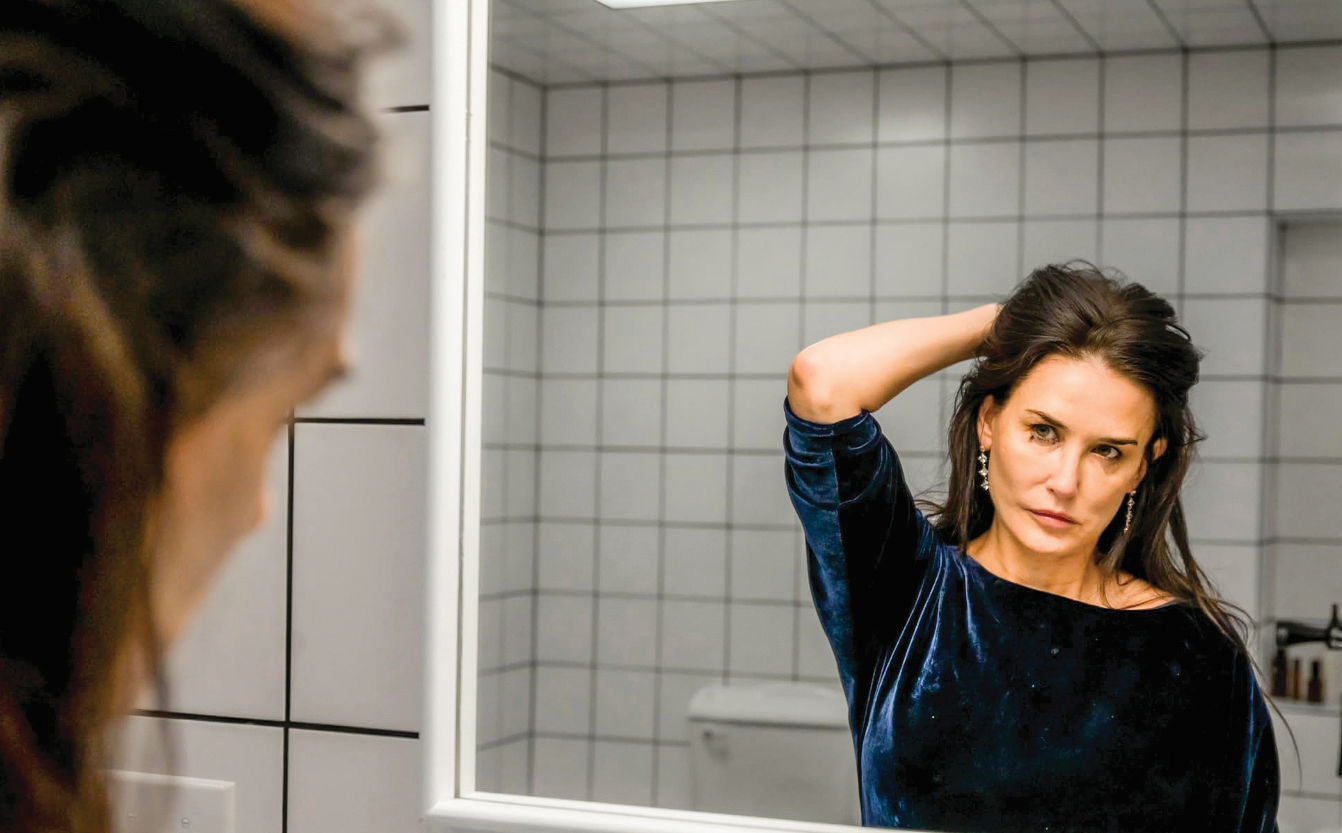I was puzzled when I recently read a piece where the writer celebrated the ‘superpower’ and the ‘liberation’ she got when menopause apparently made her invisible to men. Why would anyone want to be invisible? It might appeal to an introvert perhaps but most people – men and women – like to be seen. So, is the problem with the male gaze? Or is it the female validation of the male gaze?
The next article landed in my inbox with the blazing headline ‘Demi Moore is done with the male gaze’. Demi Moore’s latest film, The Substance, is about a female actor who’s considered over the hill and her extreme measures to regain youth. It’s billed as a body horror movie with a feminist take. Speaking to the New York Times on the Interview podcast, Moore cited a line in the film – ‘your desirability as a woman is done with your fertility.’ She said ‘this is a perception that’s been bought into, but it doesn’t make it the truth.” I hear her alright but do the men?
Take this conversation for an example. Over lunch at a friend’s place, we were talking about how Bangalore was not as safe as it used to be. I mentioned that we used to think Delhi was unsafe and worry about men being out late, not just women. A man who was present at the lunch leant forward over his bulging belly – the better to look at me through dim eyes – and said, “Oh, now you don’t have to worry about anybody doing you harm. In fact, they’ll say, let her go”. And in case it isn’t clear to you, he wasn’t talking about Delhi having become safer, he was referring to my postmenopausal state. In his view, this has rendered me unattractive.
Here we have it – the assumption of the writer I referred to earlier was this perceived lack of appeal of an ageing woman. This makes her invisible with the additional benefit of becoming inviolable. Is this a gift we want? Why are we so ready to accept our very existence only through the male lens? Why do we derive validation only when men see us as attractive? And we don’t need to go out in search of their opinion – they are happy to hand it unasked.
One day in the gym, an acquaintance came to tell me that the exercise I was doing made me, or rather would make me, look like a temple sculpture. It was a two-handed overhead dumb bell raise, if you want details. “Why are you doing all this?”, he asked. This was the same man who had on another occasion told me that I should not exercise too much ‘for my age’. When I work out, swim, or walk, I am in my zone. I don’t want to let negativity disturb it and I have not reacted to his comments with a withering retort. I also know he means well and that he’s not trying to put me down. He actually thinks he is being considerate and flattering. He once introduced me to a friend saying, “She’s not as young as she looks”. I have considered whether I should sit him down and explain why I am offended but I wonder if it’s worth the trouble.
Another man got his come-uppance from a younger friend when he remarked that she gained a lot of weight. ‘Try yoga’ he advised, handing out advice like a favour. She pointed out that she hadn’t commented about his rapidly balding head, and he should likewise keep his comments to himself. Atta girl!
But I am not hurt by the men who comment about my age. If I let their remarks get to me, I would then be handing them the power to ascribe desirability. Like Moore says, “It’s not about what’s being done to us – it’s what we do to ourselves. It’s the violence we have against ourselves. The lack of love and self-acceptance, and that within the story, we have this male perspective of the idealized woman that I feel we as women have bought into.”
The male gaze is a tool of power and control. Men will continue to be the arbiters of feminine attraction as long as women accept this and vie for male approval. Women should define their self-essence. It isn’t paused or diminished by age.
Sandhya Mendonca, author, biographer, and publisher, casts a female gaze at the world in this column.

